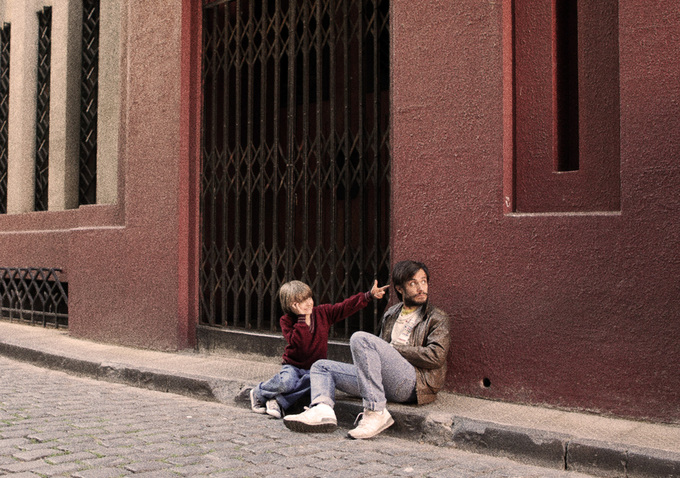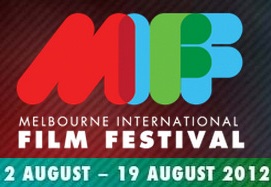NO
Directed by Pablo Larraín
Written by Pedro Peirano
2012, Chile
Earlier this year, a pro-Pinochet documentary triggered off clashes at a screening in Santiago, Chile, and prompted calls for the film to be banned. But the Piñera administration declared its hands tied, and rightfully so. Even though the Pinochet regime came to an end in 1990, it is sobering to appreciate the strength of Chile’s current democracy considering the nearly two decades of dictatorship the country suffered at his hands, during which any form of dissent was not taken to kindly; a period in its own history that the Latin American nation still finds especially sensitive.
With his fourth feature, and presumably the final film in what is ostensibly his Pinochet trilogy, Pablo Larrain tells the story of how the dictator’s stranglehold was finally released when, in 1987, Augusto José Ramón Pinochet Ugarte called for a plebiscite (or a referendum): a yes or no vote in which the public were given the opportunity to decide the fate of the Pinochet government and Chile’s future. While free elections would have been preferred, a coalition of 14 opposing parties – spearheaded by the Socialists and Christian Democrats amongst others – agreed to play and beat the regime at its own game of smoke and mirrors. In an unprecedented move, both camps were afforded 15 minutes of nightly television airtime for the duration of the campaign, a source of great suspicion for those convinced that this seeming act of fairness was simply a ploy to convince external eyes that democracy was at work in Chile.
NO centres on René Saavedra (Gael García Bernal in a role that capitalises on his soulful affability), an adman approached by the coalition to develop a “No” campaign capable of overcoming fear, corruption and social inertia. René is a born salesman and an idealist from the outset, a genuine talent who nonetheless spends his time spouting rehearsed ad-speak and displaying a humorous kind of conviction in his ideas, good or not. He is Don Draper without the suit and intimidating air of cool, and he is certainly no flake, as evidenced when his insistence on a positive and optimistic “No” campaign strikes many not only as a surefire losing strategy, but as a belittling of the suffering of the Chilean people and a denial of the country’s horrific past and present. It doesn’t help, either, that René’s boss, Lucho Guzmán (Alfredo Castro), is a “Yes” man who ends up being his most direct opponent.
One of the great, rarely tapped fortes of cinema is its ability to portray people at work, doing what they do best, what they love doing the most. Deny the subtle, vicarious thrill of patiently watching Tony le Stéphanois and his crew masterfully pull off that jewel heist in Rififi, observing David Hemmings’ character as he tensely develops, enlarges and studies those haunting photographs in Blow-Up, or following J.J. Gittes as he trails the LA water commissioner for hours in search of a scandal; deny the thrill of these sequences and we have ourselves a fist fight. One of The Wire’s greatest scenes – arguably – features two ace detectives investigating a crime scene while communicating in nothing but expletives. Notwithstanding the novelty and humour of the scene, do we as an audience ever feel closer to the souls of these characters? Not only do these scenes exhibit cinema’s acute eye for the nuances of behaviour and mannerism as well as its breathtaking sense of time, but they can often be key character-building moments, providing access to the inner sphere of a character when they are too focused to be on guard emotionally and intellectually. Similarly, NO affords us the pleasure of witnessing a collective of passionate minds – commercial, creative and political – conspire to overthrow a tyrannical regime and, in the process, inspiring a nation to boldly seize its future. It is supremely invigorating to watch as René and his team heatedly debate which direction to take the campaign, arguing like children about the staging of a scene, or contemplating whether or not to air a particular segment, because when their efforts begin to reap dividends the sense of achievement is potent. That an event – whose outcome is no secret whatsoever to even a minimally informed audience – can still arouse anxiety by the sheer intensity of its dramatization is a true testament to Larrain’s skills as a director.
It’s amazing how perversely sharp the images projected onto our screens have become, to the point that filmmakers seduced by the textured graininess of pre-digital days either hunt down the last remaining film stocks to shoot on, or doctor their digital images after the fact. Pablo Larraín and cinematographer Sergio Armstrong went one step further, shooting the entirety of NO on video. On a towering screen, up close, the film is a shock to modern eyes so accustomed to the highest of resolutions and the highest of definitions. In fact, shock does not quite describe the wave of irritation that may assault the eyes, particularly when the constantly roving camera, occasionally amateurish framing and restless editing are combined. For the first thirty minutes of the film, one wouldn’t be blamed for believing that Larraín’s decision to shoot on video, apart from achieving some sort of verité period-appropriate authenticity, is indulging in a bit of visual provocation. NO honestly looks like a mid-80s home video or a mid-90s Lars von Trier production. In fact, in its erratic shakiness, intrusiveness and disregard for the tenets of classical filmmaking, NO is visually reminiscent of Riget or Breaking the Waves. There are numerous instances in which a line of conversation will continue uninterrupted from one scene to the next despite the time, the setting and the costumes having changed completely. On that note, this is a very talky film, talky enough to match its visual dynamism, and as a result it perfectly captures the disorienting, tense but thrilling atmosphere surrounding the sociopolitical climate as the success of the “No” campaign emboldens the coalition and strikes fear into the hearts of Pinochet’s team, who are still not beyond intimidation and violence.
But just as one’s ocular tolerance is wearing thin, something interesting happens. The use of stock footage from the period becomes more prominent, be they news clips or footage from the actual “No” TV spots. The genius of Larrain’s choice is summed up by the fact that it becomes difficult to tell whether what is on screen is sourced or staged, creating a stunning sense of documentary realism that renders the drama doubly captivating because of how enveloping it becomes. It is for this reason that NO is hard to define unequivocally as docudrama, especially when the real and the staged are virtually indistinguishable. Now does this in any way enhance the content of the film? Well, that depends on what one perceives to be the heart of the film’s content. NO could easily and rightfully be seen as a recreation of this crowning example of people power and democratic principles at work in a decidedly non-democratic climate, or it can be appreciated for its exploration of the miraculous effort it takes to reinvent the mindset of an entire nation suspicious of optimism. In telling the story of a talented but apathetic adman more interested in his craft than he is in effecting change (in contrast with his dissident ex-wife Verónica), screenwriter Pedro Peirano tells the story of a downtrodden people daring to believe that their future need not be limited by their past.
Gael García Bernal has always been a compelling performer, but he always seems to play relatively unfettered individuals: dreamers, rebels, people on the fringes. To be fair, the character of René is in some respects all three of the above. But he is also a family man and a dedicated father; and a realist, for all his romanticism. Where his ex/estranged wife is a cynical reactionary frequently being manhandled by the police for her anti-regime activities, René displays the caution/borderline cowardice of a sensible parent living in the midst of a dangerous regime. But as he becomes more invested in the “No” campaign, first professionally/artistically and eventually politically, René’s character discovers a sense of conviction and principle. It might be funny to say this, but NO is in many ways a coming-of-age tale, not just of an individual but of a nation. Yes, Bernal is fantastic in this role, but for a hefty proportion of its runtime NO is a brilliant ensemble piece, brilliant in that it is captivating and the actors brilliant in it. The camera restlessly pursues all elements of the narrative, keen on documenting all hands at work. Additionally, Larraín is not interested in limiting himself to the coalition, though his glimpses into the “Yes” camp come across as somewhat comical, maybe a little disparaging at times. But who in all honesty is going to lay blame?
NO is an unlikely triumph, as unlikely as the campaign at the centre of its tale. Its execution may initially raise serious doubts despite its captivating storytelling, and it will be very interesting to see how the film plays to the limited release crowd. I certainly hope it can charm more than just 54.5% of the film-going constituency.
Tope Ogundare
Visit the official website for the Melbourne International Film Festival







